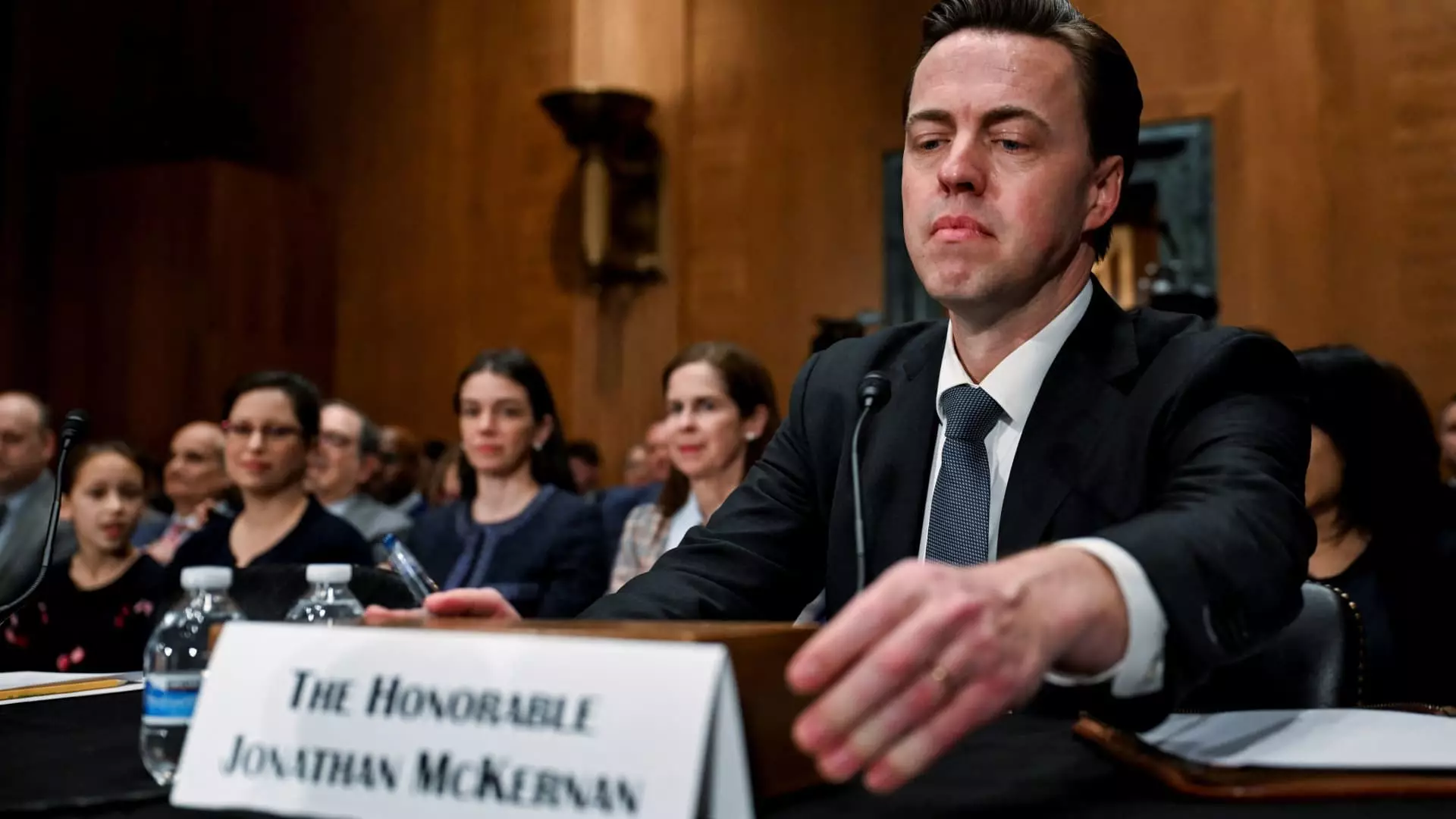The Consumer Financial Protection Bureau (CFPB) has long been a cornerstone in safeguarding the financial interests of American consumers, but recent developments signal a profound transition in the agency’s mission. With President Donald Trump’s nominee, Jonathan McKernan, facing rigorous interrogation from Democratic senators, the future of the CFPB hangs in a delicate balance. As the political landscape shifts, so too does the agency’s direction and purpose, raising critical questions about its legitimacy and effectiveness in the ever-evolving financial ecosystem.
At the core of McKernan’s confirmation hearing was a persistent inquiry into his commitment to the CFPB’s foundational mission: protecting consumers from harmful financial practices. During the session, Senator Elizabeth Warren of Massachusetts, a staunch advocate for consumer rights, rigorously pressed McKernan to affirm his legal obligations to uphold the agency’s mandates. This includes maintaining essential resources such as a website for consumer complaints and advocacy offices specifically aimed to assist vulnerable populations like military veterans and senior citizens. McKernan responded affirmatively, claiming, “Yes, I’ll follow the law,” but the undercurrents of skepticism surrounding his intentions were palpable.
One of the most revealing aspects of McKernan’s testimony was his critique of his predecessor, Rohit Chopra, whose tenure was marked by an aggressive regulatory approach that some viewed as politicized. McKernan openly stated that the CFPB had “acted in a politicized manner” and even suggested that the agency had exceeded its legal authority, therefore compromising its legitimacy. “This must be corrected,” he emphasized, suggesting a need for a recalibration of the agency’s operational ethos to genuinely support American consumers.
This shift in perspective highlights a fundamental tension within financial regulation. The CFPB was designed to be a vigilant watchdog, yet under Chopra, it may have veered too far into the realm of partisanship, raising barriers to its operational success. McKernan’s remarks imply a desire to revert the agency to a more neutral position — one that prioritizes consumer protection without political bias. However, the question remains whether such an aim can be reconciled with the current administration’s evident discontent with the agency itself.
The backdrop of McKernan’s confirmation is a chaotic organizational climate at the CFPB, with acting Director Russell Vought enacting sweeping changes. Reports of office closures, significant layoffs, and the abrupt dismissal of key enforcement lawsuits threaten to undermine the agency’s core functionality. The union representing CFPB employees has charged that Vought intends to drastically reduce the workforce, raising alarm bells about the agency’s ability to operate effectively. Such drastic measures could very well jeopardize consumer protections that are especially necessary in the post-pandemic financial landscape.
Sen. Jack Reed of Rhode Island highlighted these concerns, suggesting that Vought’s actions signal an intent to dismantle the agency. Amidst this turmoil, McKernan faces an uphill battle, seemingly lacking substantial support from the president and the Office of Management and Budget. His undertaking is likened to “departing Liverpool on the Titanic,” encapsulating the daunting challenges he must navigate if confirmed.
In this context, it is critical to scrutinize how McKernan and the CFPB, if indeed sanctioned to continue, plan to address the looming “crisis of legitimacy.” Any agency tasked with consumer protection must engender trust and confidence in the public; otherwise, its very existence is called into question. McKernan’s declaration to “right-size” and “refocus” the CFPB may resonate well theoretically, but practical steps are imperative to restore its credibility and efficacy in safeguarding consumer rights.
As future hearings unfold and more details emerge, observers must remain vigilant. The fate of the CFPB is indicative not only of the agency’s future but also of the broader regulatory environment in which it operates. The potential for a robust framework that prioritizes consumer interests stands at odds with political motivations that could stifle its mission. The real test lies in whether McKernan can embody the balance between necessary regulatory enforcement and the trust of a disenchanted public.
The ongoing saga surrounding the CFPB under McKernan illustrates a critical period for consumer financial protection in the United States. Monumental changes are underway, and whether they yield a stronger or weaker agency remains to be seen. The stakes are high, as the outcomes may very well influence the parameters of consumer protection for years to come.

